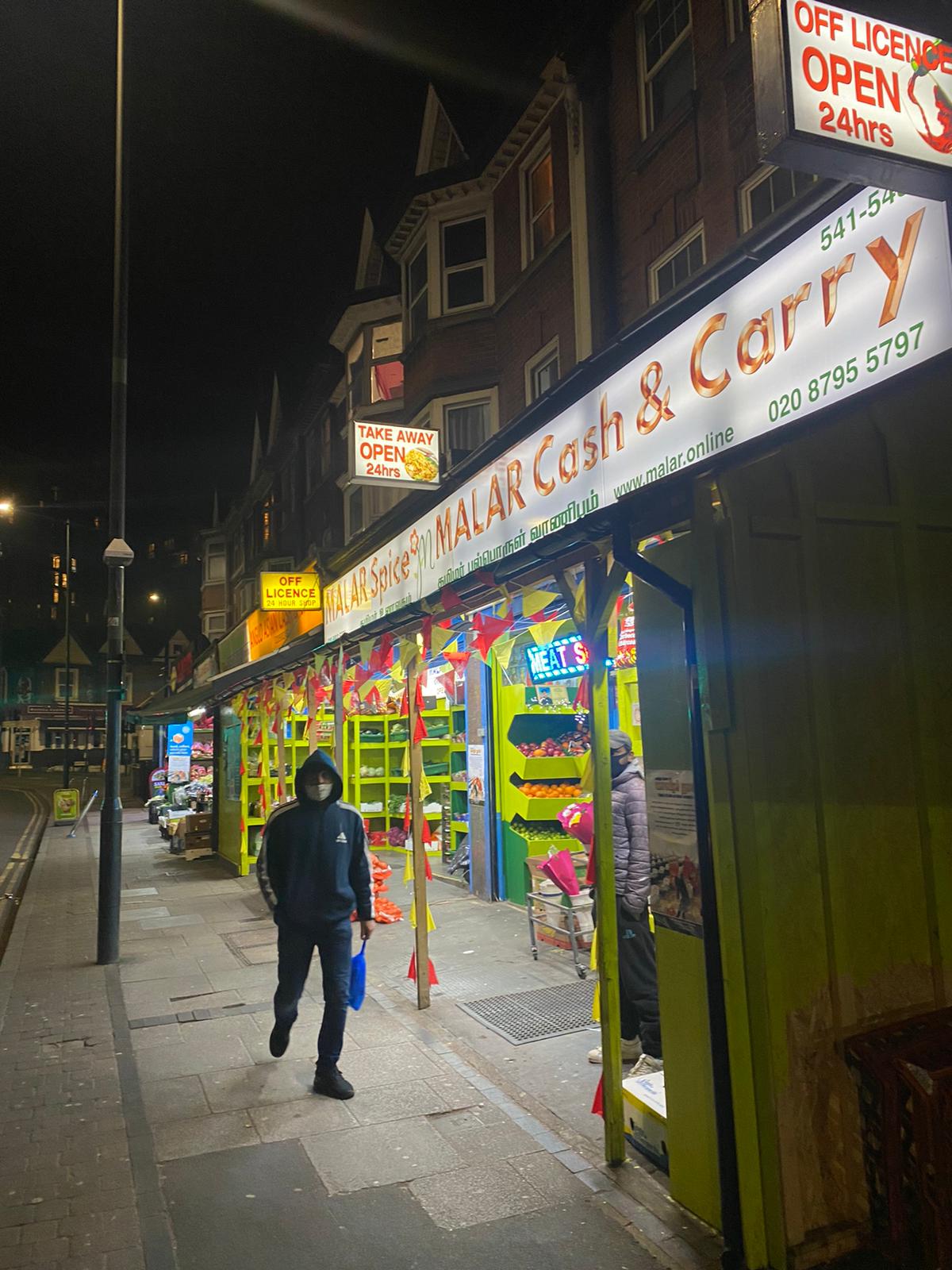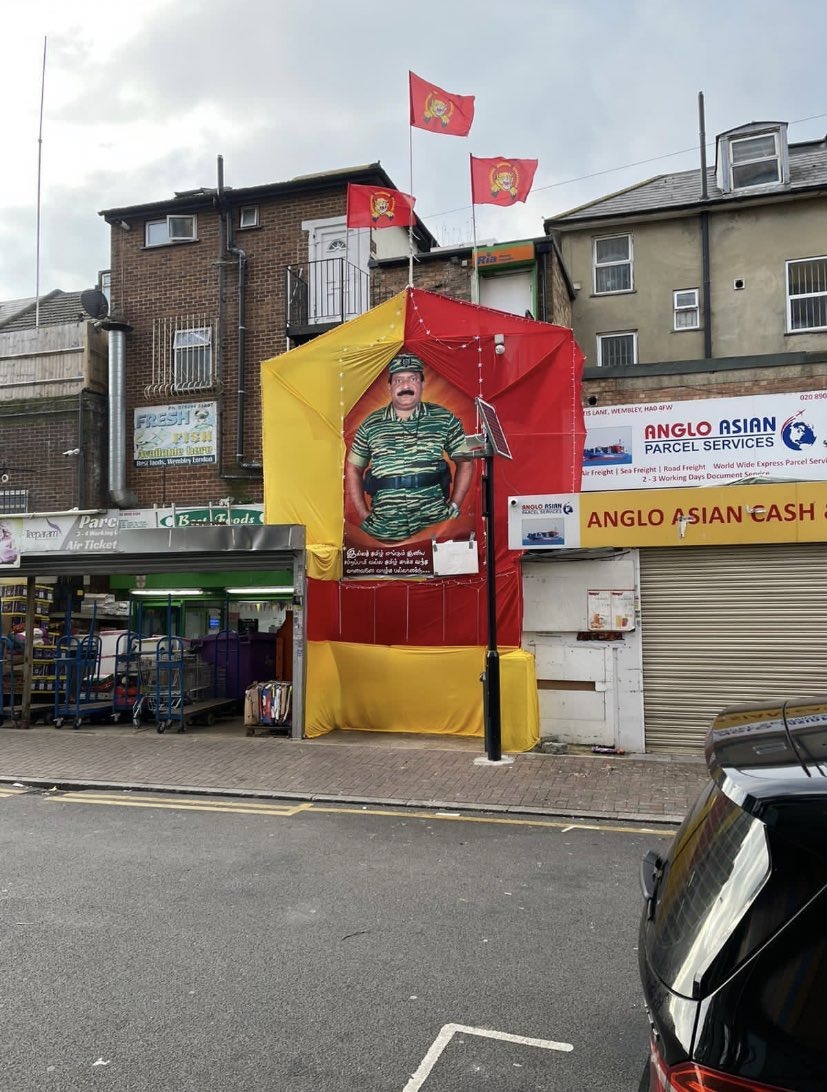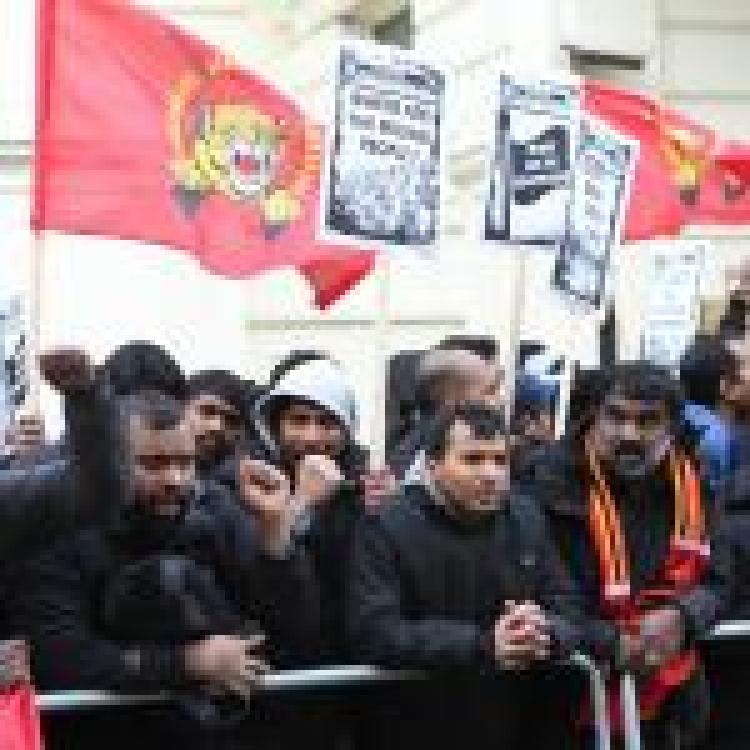
British police have reportedly ordered the removal of the Tamil Eelam national flag and a photograph of the Liberation Tigers of Tamil Eelam (LTTE) leader Vellupillai Prabhakaran from a supermarket in Wembley, London.
On Monday 23 November, four British police officers were in attendance at Malar Cash and Carry in Wembley and reported that they had received a complaint that the flag of a banned organisation had been flown in the area. They then went on to order that the Tamil Eelam national flag, which had been flown outside the store, be removed.
Despite the shopkeepers stating that the Tamil Eelam flag had not been banned the police officers refused their protests, warning them that criminal action would be taken if they failed to remove the flag.
“As a result, the staff there had to remove the Tamil Eelam national flag and the image of the Tamil Eelam national leader” explained an entrepreneur who runs a sub-store in the supermarket. “Now only red and yellow flags and decorations are allowed to fly in the flower supermarket.”
Meanwhile at another store in Wembley, just a few doors down, large scale decorations were reportedly allowed to stand.

The decorations were raised ahead of Maaveerar Naal, which Eelam Tamils have been marking worldwide. Several universities, homes and businesses across the United Kingdom raised Tamil Eelam flags and encountered no issues from British authorities.
Read more: Tamils across London hoist Tamil Eelam flags in build-up to Maaveerar Naal
Also see more from Sankathi 24 here.
The Tamil Eelam flag has been repeatedly flown across the UK for decades, without any prosecutions having taken place for its display. The latest action by officers come as a landmark judgement from Britain’s Proscribed Organisations Appeal Commission found that the Home Office decision to keep the Liberation Tigers of Tamil Eelam (LTTE) proscribed as a terrorist organisation was “flawed” and unlawful, paving the way for the organisation to possibly being legalised in the United Kingdom.

